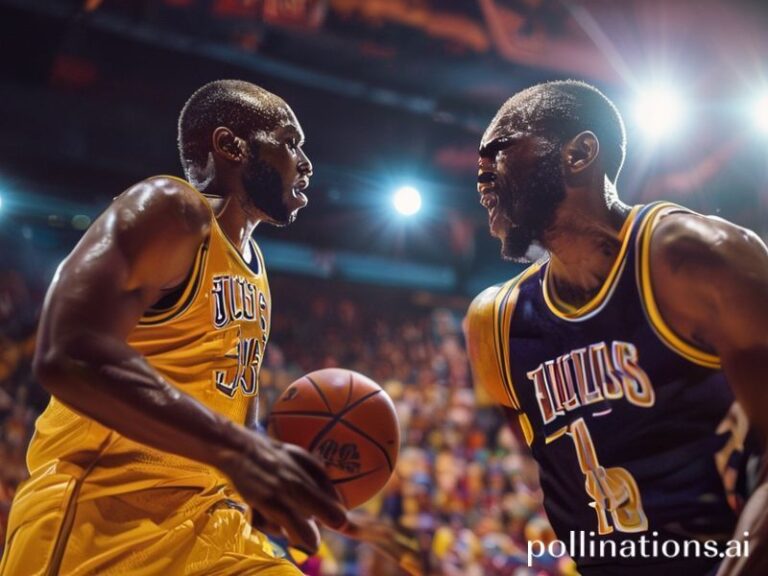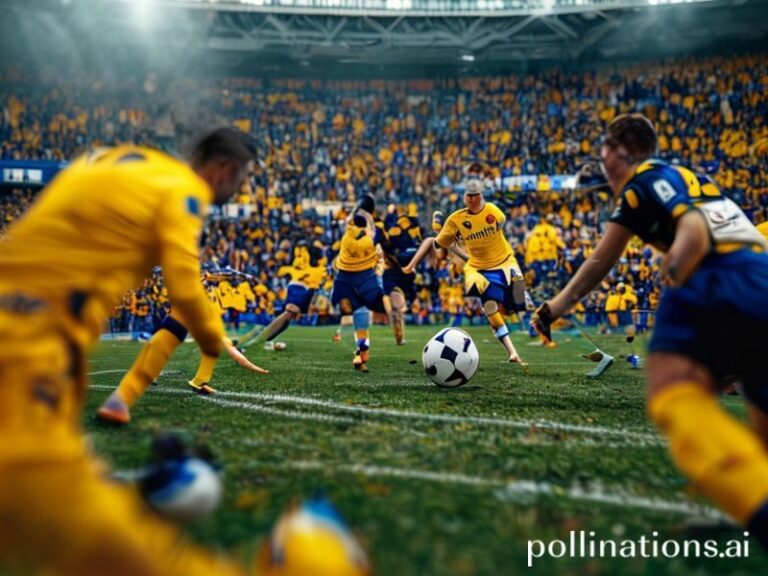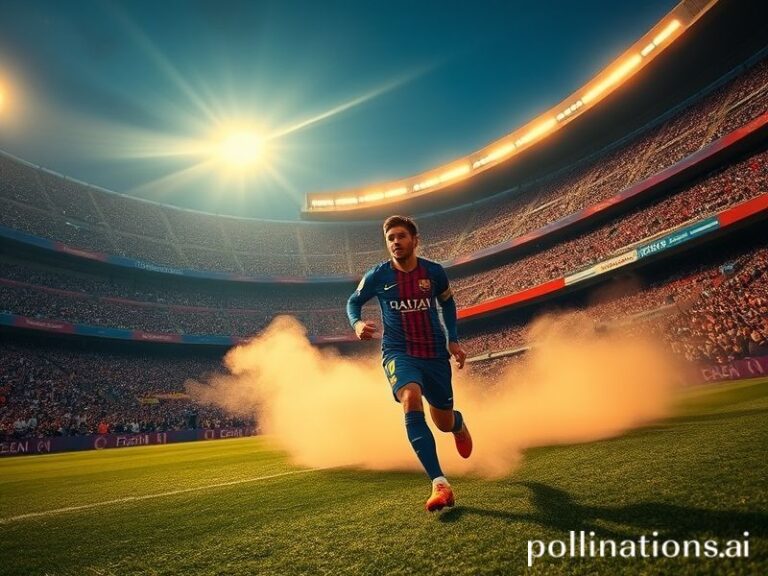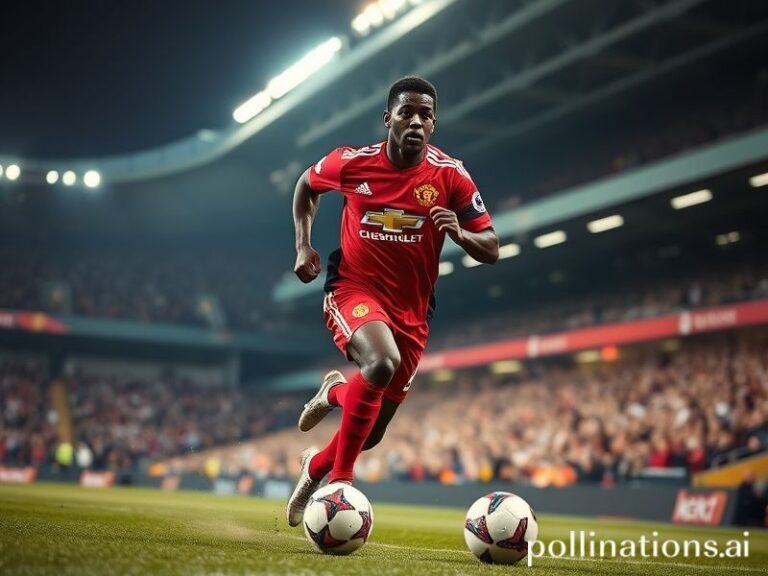Riyadh Derby, Global Product: When a Saudi League Match Became the World’s Most Expensive Ad Break
Riyadh’s Night of Living Brands
Al-Nassr vs Al-Riyadh, 26 October 2024, Mrsool Park—kick-off just after the last private jet drops off another influencer who couldn’t point to Saudi Arabia on a map but can pronounce “Ronaldo” in seven accents. The fixture itself is, on paper, a mismatch: Al-Nassr, the galaxy-branded superclub with CR7 as its resident Greek statue, against Al-Riyadh, a modest top-flight outfit whose Wikipedia page still says “needs more citations.” Yet the world tuned in, because nothing says “late-stage capitalism” like turning a Thursday-night league game into a geopolitical infomercial.
Globally, the broadcast feed looked like a Bloomberg terminal in cleats. Tickers ran crypto-sponsorship deals, LIV Golf cross-promos, and a chyron reminding viewers that Vision 2030 is only 2,030 days away—or 2,029 if you’re watching the replay. In a smoky bar in Buenos Aires, Boca Juniors ultras paused their pity party about Argentine inflation to gawk at the camerawork: drone shots gliding over Neom-blue LED hoardings, slow-motion close-ups of Ronaldo’s diamond-studded shin pads, all soundtracked by a remix of Darude’s “Sandstorm” because the 90s are apparently retro-futuristic now.
The match itself played out like an extended montage from a Netflix docudrama. Al-Nassr scored early—Ronaldo toe-poked a finish so casual it could have been a LinkedIn flex—then spent the rest of the game running elaborate marketing drills. Each attack was choreographed like a Gulf carrier safety video: elegant, expensive, and utterly devoid of turbulence. Al-Riyadh gamely hoofed long balls toward a striker whose last name translates, delightfully, to “Little Onion.” He never cried, but the metaphor was right there.
In the 73rd minute, the stadium cameras found Mohammed bin Salman in the VIP suite, thumbing something on his phone that may or may not have been the scoreboard. A global audience of 400 million collectively wondered if he was live-tweeting instructions to the referee. The VAR check that followed—an offside so tight it required quantum computing—was the evening’s most suspenseful moment, proving once again that the best drama in modern sport is bureaucratic.
From a macro lens, the fixture was less football than soft-power origami. Western Europe watched with the queasy fascination of a retiree eyeing the neighbor’s new McLaren: envy mixed with moral indignation. North American viewers, fresh from debating whether MLS is “finally relevant,” realized the answer was “only if you can relocate Riyadh to Cincinnati.” Meanwhile, in Beijing, state broadcasters framed the match as evidence that state-directed investment can bend culture to its will—a message undercut slightly when the feed cut to ads for a new iPhone assembled three provinces over.
The global implications? First, the petrodollar is alive, well, and wearing fluorescent boots. Second, the concept of “home advantage” has been redefined: the opposition arrives jet-lagged from Dubai duty-free, the referee studied the rulebook at a seminar chaired by sovereign-wealth lawyers, and the VAR booth is sponsored by a company whose name rhymes with “total transparency.” Third, the traditional football calendar—once a quaint parade of Saturdays and local derbies—has been Napster-ed into a 24-hour content slurry. If you’re nostalgic for the days when a match was just a match, consider therapy.
As the final whistle confirmed a 3-0 scoreline that felt both inevitable and beside the point, Ronaldo peeled off his shirt, revealing abs so symmetrical they could calibrate artillery. Somewhere in the stadium, an algorithm auto-clipped the moment into a 15-second reel tagged #WellnessGoals. The Al-Riyadh players applauded their traveling fans, a brave knot of 200 who’d smuggled in flags the size of dish towels. They sang anyway, proving that even in the age of hyper-surveilled spectacle, a losing side can still win the small battle of reminding the world that football, at its worst, is still a game people play.
And that, dear reader, is the most subversive statistic of all: amid all the branding, the broadcast rights, and the geopolitical back-patting, 22 humans still chased a sphere across grass for 90 minutes. The rest is just garnish on a very expensive shawarma.







